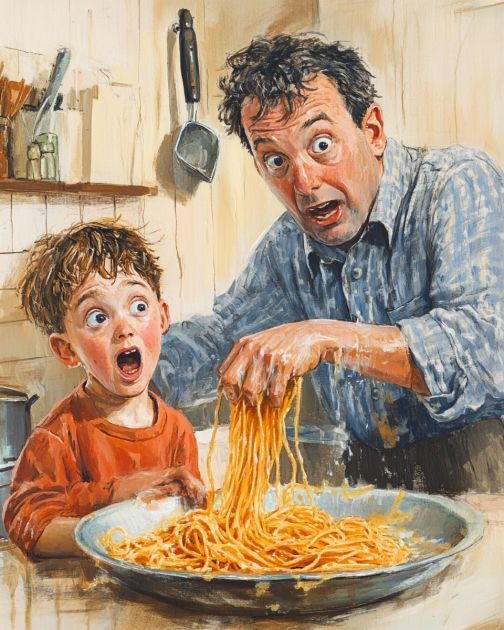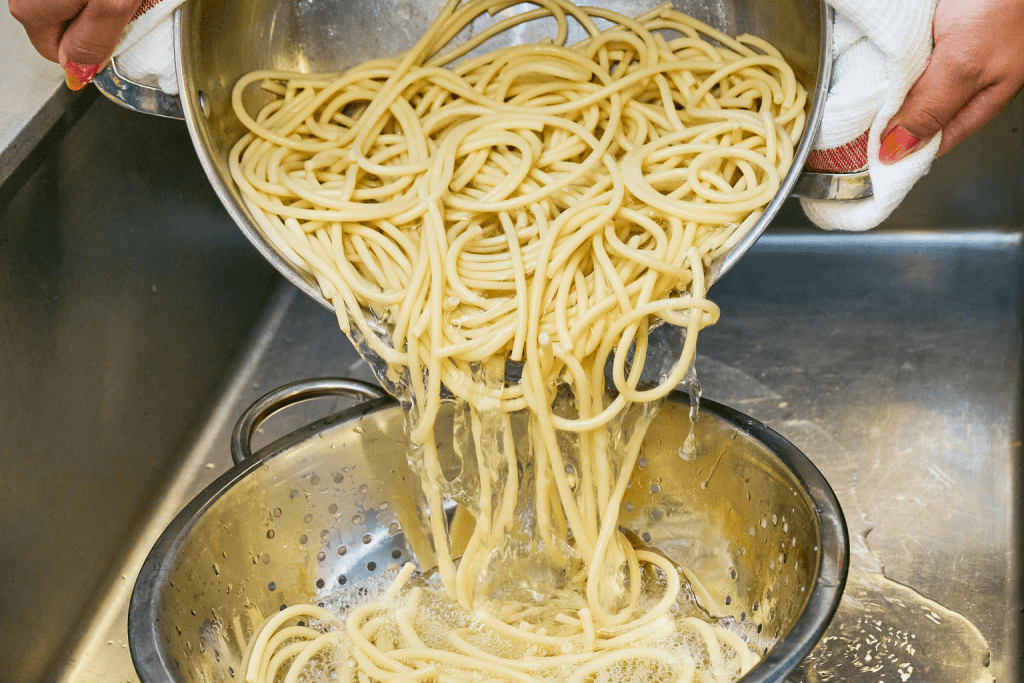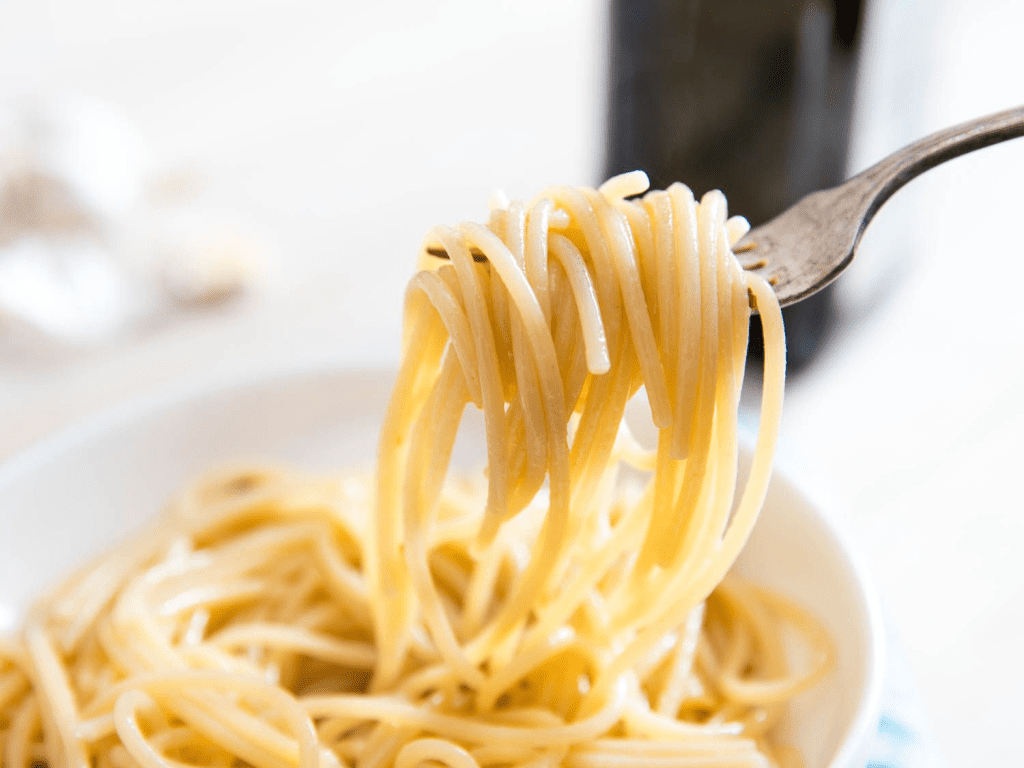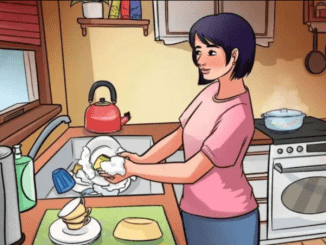The other day, I was cooking spaghetti with my uncle when I witnessed something unexpected: after boiling the pasta to perfection, he promptly rinsed it under cold water. I was puzzled—wasn’t rinsing pasta an outright culinary sin? In Italian cooking, the starch that clings to pasta is seen as essential for soaking up sauce and flavor. This strange step made me curious, so I decided to dive deeper and understand why some people choose to rinse their pasta.

How Cooking Pasta Works: Understanding the Basics
Cooking pasta is more than just boiling noodles until they’re soft. Typically, you’ll boil pasta in salted water, then drain it and immediately toss it with your favorite sauce. This is where the magic happens: the heat and starch allow the pasta to bind with the sauce, creating a harmonious and flavorful dish. When you rinse pasta, however, you wash away that precious starch, leaving me wondering—does rinsing ruin the pasta experience?
Why Rinsing Pasta is a No-Go in Traditional Italian Cuisine
In Italy, where pasta is almost a sacred food, rinsing spaghetti after cooking would likely be met with gasps. Traditional Italian cooking stresses the importance of maintaining the natural starch on pasta, which acts as a sponge for sauce. When Italians cook pasta, they often transfer it directly into a pot of simmering sauce right after draining. This technique ensures that every strand is infused with the flavors of the sauce, allowing the pasta and sauce to blend seamlessly. So, in traditional Italian cuisine, rinsing pasta isn’t just unnecessary—it’s counterproductive.
The Global Approach: Cultural Variations in Pasta Preparation
While Italians might frown upon rinsing, pasta has made its way into kitchens worldwide, where it’s prepared in various ways to suit local tastes. In places where pasta salads are popular, like the United States, rinsing is a common step. Why? Because rinsing with cold water stops the pasta from cooking further, which is essential for cold dishes. It prevents pasta from clumping together and helps maintain a firmer texture, which is perfect for pasta salads or other cold preparations. So, in some cuisines, rinsing pasta has its practical benefits.
The Science Behind Rinsing Pasta: What’s Really Happening?
What exactly happens when you rinse pasta with cold water? It all comes down to starch and temperature. Starch in pasta is what makes it slightly sticky, allowing sauce to adhere. When you rinse pasta, you shock it with cold water, halting the cooking process instantly. This is known as “gelatinization,” and it prevents pasta from getting mushy by stopping the starch from absorbing any more water.
Rinsing also helps remove some of the surface starch, which can sometimes cause noodles to clump together. This can be useful if you’re preparing pasta in advance and want to prevent it from sticking as it cools. The downside? In hot pasta dishes, this lack of starch means that sauces may not cling as well, potentially resulting in a less flavorful meal.
Pros and Cons of Rinsing Pasta

So, should you rinse your pasta or not? Let’s look at the pros and cons:
- Pros:
- Prevents Overcooking: Rinsing with cold water stops the cooking process, which can be helpful if you need to prevent mushy pasta.
- Reduces Stickiness: By removing surface starch, rinsing helps keep the pasta from sticking, especially in cold dishes.
- Ideal for Cold Dishes: Rinsed pasta is perfect for salads and other dishes served at cooler temperatures.
- Cons:
- Reduces Sauce Adhesion: Without starch, pasta becomes slippery, and sauces may not cling as effectively.
- May Diminish Flavor: Rinsing removes the layer of starch that can help infuse the pasta with the sauce’s flavors, leading to a less flavorful dish.
- Not Suitable for Hot Dishes: For traditional hot pasta dishes, rinsing is unnecessary and often detracts from the final result.
Debunking Myths About Rinsing Pasta

There are a few myths surrounding pasta rinsing, and it’s time to set the record straight.
- Myth 1: Rinsing Pasta is Healthier – Some people believe that rinsing pasta reduces carbohydrates, but this is mostly untrue. The pasta itself contains the carbs, so rinsing doesn’t make much of a difference in terms of nutrition.
- Myth 2: Rinsing Rescues Overcooked Pasta – If you’ve overcooked your pasta, rinsing won’t magically return it to al dente. Once the texture is lost, it can’t be restored by rinsing.
- Myth 3: Rinsing Removes Impurities – Some believe that rinsing cleanses the pasta of impurities, but if you’ve used clean, filtered water for cooking, rinsing is unnecessary for hygiene.
What the Experts Say: To Rinse or Not to Rinse?
When it comes to pasta, expert chefs generally recommend against rinsing for hot dishes. According to culinary experts, the secret to a delicious pasta dish lies in the starchy pasta water left over after cooking. This “liquid gold” can be used to enhance the consistency of sauces and add a cohesive, creamy texture. So, rather than rinsing, try adding a splash of pasta water to your sauce as you combine it with the noodles. This technique creates a silky, restaurant-quality dish that keeps all the flavors intact.
However, even the pros agree that rinsing has its place. For dishes like pasta salad, rinsing is fine and even preferred, as it cools down the pasta and stops it from cooking further. So, the ultimate decision depends on the dish you’re preparing.
Conclusion: Tailoring Your Pasta Techniques to Suit Your Taste
In the end, the choice to rinse pasta—or not—comes down to personal preference and the type of dish you’re making. Rinsing may not fit the mold of traditional Italian cuisine, but it has a place in modern kitchens, especially when preparing cold pasta dishes. My uncle’s rinsing habit reminded me that cooking is as much about breaking the rules as it is about following them. The beauty of cooking lies in experimentation, so don’t be afraid to try new things. By understanding the science and tradition behind these techniques, you can elevate your pasta game and make every dish truly your own.


